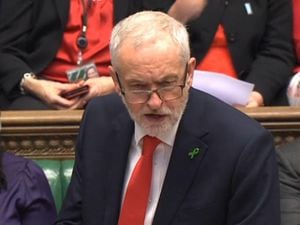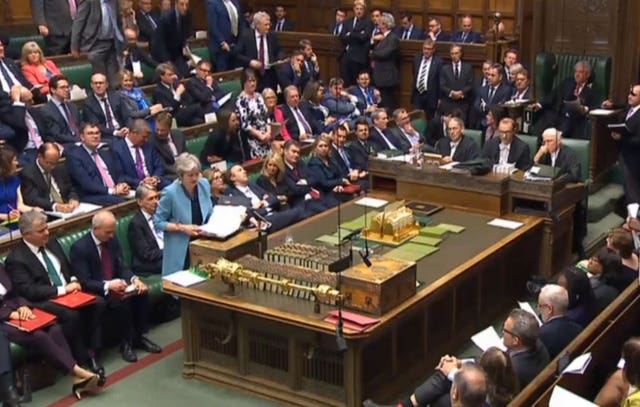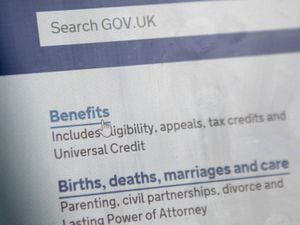May should step aside if she fails to win good Brexit deal, says Corbyn
The Prime Minister said Labour could not be trusted and claimed only the Tories could deliver a Brexit that is ‘in the interests of British people’.

Jeremy Corbyn has called on the Prime Minister to “step aside” if she cannot negotiate a good deal for Britain in the Brexit talks.
The Labour leader claimed the Government is “so busy negotiating with itself it cannot negotiate with anybody else”, as he suggested Theresa May should make way for his party.
Mrs May, speaking during Prime Minister’s Questions in the Commons, said Labour could not be trusted and claimed only the Tories could deliver a Brexit that is “in the interests of British people”.
Conservative MPs tried to shout down Mr Corbyn as he asked: “If the Prime Minister cannot negotiate a good deal for Britain, why doesn’t she step aside and let Labour negotiate a comprehensive new customs union and living standards backed by trade unions and business in this country?
“Step aside and make way for those who will.”
Mrs May said Labour had broken promises on trade deals, student debt and anti-Semitism, adding: “It is only the Conservative Party that can be trusted by the British people to deliver a Brexit that is in the interests of British people, to deliver opportunity for all and a Britain that is fit for the future.”
Earlier in the exchanges, Mr Corbyn drew laughs as he asked: “When the Prime Minister wrote at the weekend that she wanted ‘as little friction as possible’, was she talking about EU trade or the next Cabinet meeting?”
Mrs May said the Government has a policy of leaving the customs union and asked him to “reflect on the fact that this month the shadow health minister in the Lords voted for a second referendum”.
“That at the weekend the shadow Brexit secretary refused to rule out a second referendum, and on Monday the shadow international development minister tweeted in favour of a second referendum.
“So perhaps, when he stands up, he could put the minds of the British people and this House at rest and rule out a second referendum.”

“The reality is the Cabinet is more interested in negotiating with each other than it is with the European Union,” Mr Corbyn said.
“The Prime Minister’s promise of as little friction as possible is in stark contract with the earlier commitment that it would be friction-free.”
Mrs May replied: “We want to ensure that we are able to continue to trade in as frictionless a way as possible. The suggestion that trade at the moment is entirely frictionless is actually not correct.
“We have set three very simple objectives for a future customs union. Now, I will say to this House that achieving those objectives, which I’ve just set out, is not easy.
“It is difficult. There will be some who will say actually, forget about an independent trade policy. That is not the position of this Government.
“There may be some who say don’t worry about the Northern Irish border. That is not the position of this Government.
“It is absolutely right that we are aiming to achieve those three objectives, and when he talks about progress, we’ll be publishing a white paper in a few weeks which will show how much progress we are making on these issues.”
Mr Corbyn also congratulated Mrs May on “dividing her Cabinet into rival camps”, and pressed her on how many additional HMRC staff have been recruited to deal with Brexit.
Mrs May said the Government was making preparations for “all contingencies”.
The PM, in response to a later question from Conservative former minister Owen Paterson, warned politicians against ignoring the vote in favour of Brexit.
She said: “What this Government is doing is delivering on the vote of the British people, which was to leave the European Union. As we do that we’ll ensure we get the best Brexit deal for the United Kingdom.
“It is important, and I consider it to be a matter of the integrity of politicians, that having given the choice to the British people we should then deliver for them on that choice.”





